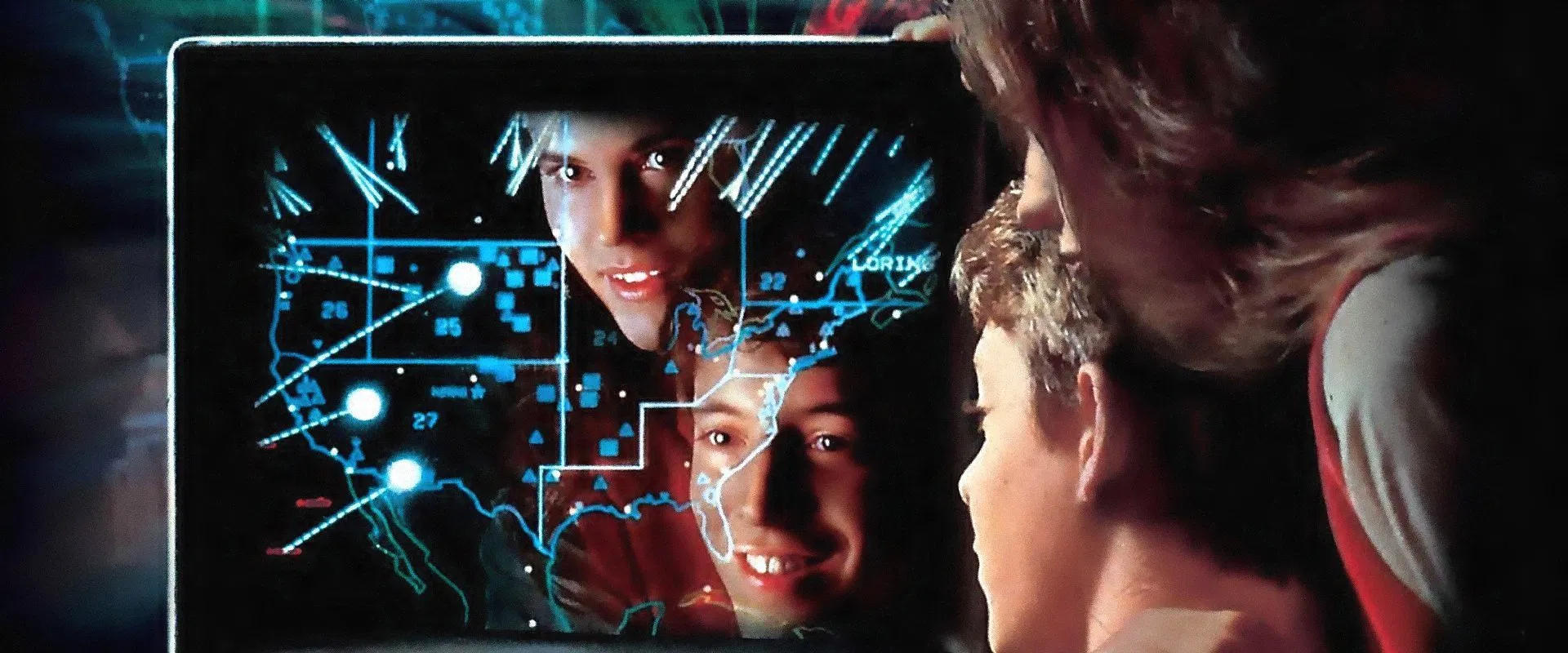WarGames belongs to that rare class of Hollywood entertainments that seem, almost accidentally, to have tapped straight into the anxieties—and hopes—of an entire era. John Badham’s 1983 techno-thriller opens in a haze of early computer geekery: modems squeal, dot-matrix printers grind, and a Seattle teenager named David Lightman (Matthew Broderick) sits hunched over his blue-glowing screen. Within minutes, what begins as an innocent search for a few pirated video games erupts into a pulse-cranking race against nuclear oblivion—a transformation so swift and seamless it’s as if the movie itself is racing the clock.
Broderick’s David is a quintessential eighties underachiever, all slouched shoulders and ironic wit. There’s a charming, almost bumbling quality to his performance—this is no world-weary boy genius, just a kid whose curiosity outpaces his caution. Ally Sheedy’s Jennifer charges onto the scene as the brisk, level-headed counterpart, and their rapport offers a lifeline of warmth in a film otherwise shadowed by warheads and blinking monitors. Their innocence isn’t mocked; it’s the axis the whole film spins on.
If the original Cold War “doomsday” dramas—Fail-Safe, Dr. Strangelove—lingered amid military brass and clenched teeth, WarGames shifts the stage to bedrooms and rec rooms. The threat isn’t a cackling villain or even a misguided general (though Dabney Coleman’s Dr. McKittrick embodies bureaucratic arrogance with silky unease): it’s the very logic of the machine, the faceless pulse of code gone wild. The WOPR supercomputer, programmed to play endless scenarios of thermonuclear war, is all the more terrifying for its deadpan monotone, arguing the world’s fate with a computer’s remorseless sanity. There’s a black comic horror to watching an adolescent’s hacker high jinks spiral toward global annihilation, and the film wrings suspense from this premise with almost unfair economy.
The plot’s machinery whirrs efficiently: a forgotten password, a military search, a desperate sprint to a hidden bunker, and—just when you expect the world to dissolve into over-the-top spectacle—a simple, brilliantly understated lesson emerges. “The only winning move is not to play,” WOPR concludes, having at last grasped the futility of nuclear war. What could easily have been a heavy-handed civics lecture lands instead as a sly, poignant punchline. The image of tic-tac-toe, that most infuriating of stalemates, becomes a metaphor for the movie’s larger warning: in some games, victory means refusal.
This is a movie that knows its audience—at once dazzled and uneasy before the magics of new technology. The tactile retro-fetishism of code, clunky desktop hardware, and flickering LEDs gives the film a time-capsule glow, but the anxiety it mirrors—of losing control over the things we create—is anything but dated. The government men in their mountain sanctum are as overwhelmed as the kids in Seattle; authority is exposed as a house of cards, propped up by false certainty and a hope that the machine is on “our” side. Here, cleverness is both gift and poison.
Not every moment hums with the same tension. The mid-film chase sequences feel suspended in amber, gesturing toward suspense more than delivering it. But the climax—buried in the mountain heart of American war power—restores the film’s charge: a blinking contest between a programmed apocalypse and an ordinary boy who’d rather be playing at the arcade.
WarGames lingers not because it’s a period curiosity or a technological artifact, but because its central tension has never gone away. Its message—etched with both a wink and a warning—reminds us that progress always rides shotgun with destruction, and that sometimes the most human choice is to resist the urge to outsmart ourselves. In the flickering dark, the joystick still beckons. The brilliance of WarGames is to make us pause, if just for a moment, before pressing “play.”


